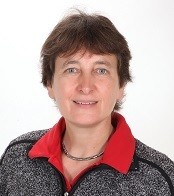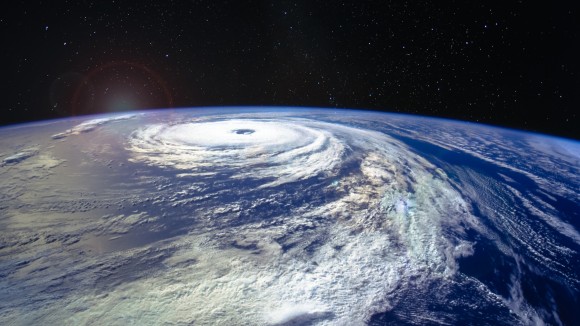 Dina D’Ayala is Professor of Structural Engineering at UCL, UK, where she co-heads the EPICentre, Interdisciplinary Centre for Natural Hazards Resilience. Her research currently focuses on holistic measures for enhancing the performance of structures and infrastructure in multi-hazard environments, with particular interest on school and transport infrastructure, to create safer communities. She leads the UNESCO Chair in Disaster Risk Reduction and Resilience Engineering, a programme aimed at creating a global culture of resilience engineering and to provide locally tailored guidance to improve school and transport infrastructure resilience at scale. She advises the World Bank and UK government on technical issues in this field. She is a Director of the International Association of Earthquake Engineering, Associate Editor of the Bulletin of Earthquake Engineering. Prof D’Ayala joined Scientific Reports as an Editorial Board Member in 2021.
Dina D’Ayala is Professor of Structural Engineering at UCL, UK, where she co-heads the EPICentre, Interdisciplinary Centre for Natural Hazards Resilience. Her research currently focuses on holistic measures for enhancing the performance of structures and infrastructure in multi-hazard environments, with particular interest on school and transport infrastructure, to create safer communities. She leads the UNESCO Chair in Disaster Risk Reduction and Resilience Engineering, a programme aimed at creating a global culture of resilience engineering and to provide locally tailored guidance to improve school and transport infrastructure resilience at scale. She advises the World Bank and UK government on technical issues in this field. She is a Director of the International Association of Earthquake Engineering, Associate Editor of the Bulletin of Earthquake Engineering. Prof D’Ayala joined Scientific Reports as an Editorial Board Member in 2021.
 You Dong is an Assistant Professor of structural engineering at the Department of CEE of Hong Kong Polytechnic University. He obtained his PhD degree from Lehigh University. He has published 60 journal papers, refereed proceedings, and invited keynotes. Dr. Dong serves as a committee member of the ASCE- SEI Technical Council on Life-Cycle Performance, Safety, Reliability and Risk of Structural Systems and Multi-Hazard Mitigation. He has been awarded several international awards, such as the Young Scholar Award from the IABMAS. His research mainly focuses on the development of the next generation of AI-empowered civil and marine structures, incorporating risk, resilience, and sustainability in a life-cycle context. Dr Dong joined Scientific Reports as an Editorial Board Member in 2021.
You Dong is an Assistant Professor of structural engineering at the Department of CEE of Hong Kong Polytechnic University. He obtained his PhD degree from Lehigh University. He has published 60 journal papers, refereed proceedings, and invited keynotes. Dr. Dong serves as a committee member of the ASCE- SEI Technical Council on Life-Cycle Performance, Safety, Reliability and Risk of Structural Systems and Multi-Hazard Mitigation. He has been awarded several international awards, such as the Young Scholar Award from the IABMAS. His research mainly focuses on the development of the next generation of AI-empowered civil and marine structures, incorporating risk, resilience, and sustainability in a life-cycle context. Dr Dong joined Scientific Reports as an Editorial Board Member in 2021.
 Fangxin Fang is a senior research fellow at Imperial College, and executive manager of data assimilation laboratory at the Data Science Institute, Imperial. She leads the research on advanced computational tools and data science technologies that can help us to manage a safe, comfortable and healthy environment. Her main original contributions center on cutting edge techniques of predictive modelling (machine learning, and data assimilation techniques, reduced order modelling, adaptive observation), where the work is at the forefront of data centric modelling. The applications are mainly focus ocean, atmospheric, multiphase flows and environmental problems. Fang and her group first applied deep learning techniques to real-time spatio-temporal prediction of nonlinear fluid flows. Applications of advanced data-centre modelling techniques will be renewable energy, weather prediction, pollution forecasting and coastal engineering. Dr Fang joined Scientific Reports as an Editorial Board Member in 2021.
Fangxin Fang is a senior research fellow at Imperial College, and executive manager of data assimilation laboratory at the Data Science Institute, Imperial. She leads the research on advanced computational tools and data science technologies that can help us to manage a safe, comfortable and healthy environment. Her main original contributions center on cutting edge techniques of predictive modelling (machine learning, and data assimilation techniques, reduced order modelling, adaptive observation), where the work is at the forefront of data centric modelling. The applications are mainly focus ocean, atmospheric, multiphase flows and environmental problems. Fang and her group first applied deep learning techniques to real-time spatio-temporal prediction of nonlinear fluid flows. Applications of advanced data-centre modelling techniques will be renewable energy, weather prediction, pollution forecasting and coastal engineering. Dr Fang joined Scientific Reports as an Editorial Board Member in 2021.
 Heidi Kreibich is Head of the working group “Flood risk and climate adaptation” at the German Research Centre for Geosciences and Senior Lecturer at the Humboldt-Universität zu Berlin. Additionally, she is chair of the Panta Rhei initiative of the International Association of Hydrological Sciences (IAHS). Her research is focused on flood risk modelling, vulnerability analysis and loss modelling, climate adaptation and risk management as well as multi risk assessments. PD Dr Kreibich joined Scientific Reports as an Editorial Board Member in 2021.
Heidi Kreibich is Head of the working group “Flood risk and climate adaptation” at the German Research Centre for Geosciences and Senior Lecturer at the Humboldt-Universität zu Berlin. Additionally, she is chair of the Panta Rhei initiative of the International Association of Hydrological Sciences (IAHS). Her research is focused on flood risk modelling, vulnerability analysis and loss modelling, climate adaptation and risk management as well as multi risk assessments. PD Dr Kreibich joined Scientific Reports as an Editorial Board Member in 2021.

